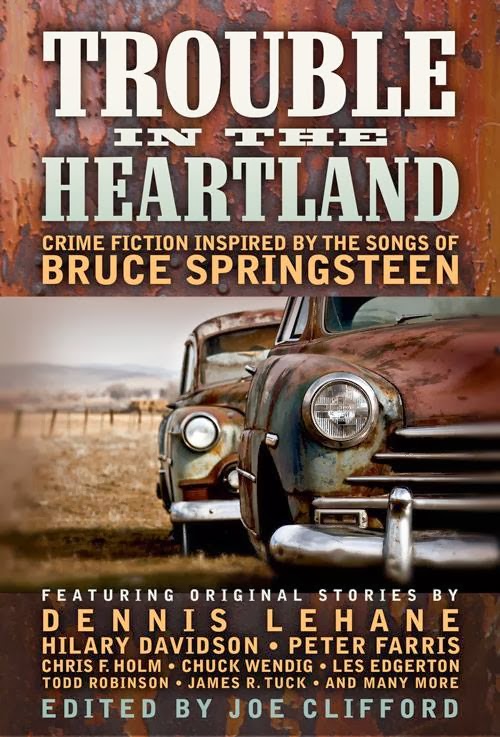Hi folks,
As some of you know, I’ve
gotten into the habit of providing a literary quote of the day in Facebook. I
have personal experience from my own writing life that “proves” the quote I
provided today, at least for me. First, let me provide that quote:
Quote of the day: (On
describing characters.)
“Bruno Bettelheim, in The Uses of Enchantment, writes that the
fairy tale (and, similarly, the Drama) has the capacity to calm, to incite, to
assuage, finally, to affect, because
we listen to it nonjudgmentally—we identify subconsciously
(non critically) with the protagonist.
“We are allowed to do this,
he tells us, because the protagonist and, indeed, the situations are uncharacterized aside from their most essential
elements.
When we are told, for
example, that a Handsome Prince went into a wood, we realize that we are that Handsome Prince. As soon as
the prince is characterized, ‘A Handsome Blond Prince with a twinkle in his
eye, and just the hint of a mustache on his upper lip…’ and if we lack that
color hair, twinkle, and so on, we say, ‘What an interesting prince. Of course,
he is unlike anyone I know…’ and we
begin to listen to the story as a critic
rather than as a participant.”
David Mamet from his book Writing in Restaurants
Years ago, in my days of
cutting hair, I talked to most of my clients about my work. That was a big
mistake—I later discovered that when I talked about the work, especially the
current work—that I’d expended the energy of actually writing it that night
when I went home and faced my computer.
But, in those days I still
hadn’t learned that lesson. What was profitable from those conversations was
that I learned something from my readers. Most had read my work, particularly Monday’s Meal, my first collection of
short stories. We’d talk about them and I’d answer the usual questions—how did
you come up with that idea? did that happen in real life? how come there are a
lot of characters who have their hands or fingers cut off?
And then, one day, I
noticed in our conversations, very often the person would describe one of the
characters in the stories. That’s odd,
I remember thinking. I couldn’t ever remember providing character descriptions.
It wasn’t because of something someone had told me not to do—I’d experienced
little or no writing instruction of advice in those days and wrote purely from
an instinctual stance. I went back to see if I had, inadvertently, provided
descriptions. I hadn’t.
So then, I began asking the
person I was chatting with if he or she could describe the character in the
story we were talking about. Sure, they said, almost to a person, and proceeded
to deliver a very detailed, sometimes exhaustive
description of the person. And, I began to notice that in these very complex
descriptions always there would be a characteristic that belonged to the person
telling me the description.
“And where,” I said, “did
you get this description from?” “Why, it was in the story,” they’d say. “No, it
wasn’t,” I said. I’d open a copy, turn to the story, and ask them to point out
where their description came from. They’d skim through it, a puzzled look on
their faces, and finally, say, “Well, I was sure I read it.” And then, we’d
laugh and go on to other topics.
I think the best way to
learn to write well is to read lots and lots and lots. Something I’ve done all
of my life. One of the things I’d always thought boring in a novel was when the
author described their characters. Especially when they overloaded the details
of those descriptions. I knew that my brain switched off at those passages and
I’d almost always skip those parts and go ahead. And, usually those kinds of
stories were fairly boring to me. At the time, I couldn’t articulate why that
was so, I just knew it was.
And, like Harry Crews (who
said it first and these days it’s inaccurately attributed to Elmore Leonard,
who included it in his book on writing and had taken it from Crews) I was
always acutely aware of those parts I tended to skip when reading and did my
utmost to not provide those parts in my own writing.
And, then, a few years ago,
I happened upon David Mamet’s book, Writing
in Restaurants, and when I read the quoted passage above, had one of those Eureka! Moments.
I didn’t change anything. I
didn’t pay closer attention to avoiding character descriptions—that was already
finely-honed in me to not do so, but it is always great when you encounter a
bona fide writing “authority” that confirms what you’ve been doing is spot on
the money. Kind of validates what you’re doing.
How about you? How do you
feel about character descriptions? Are you like me or are you the opposite? Are
you one who really enjoys the author laying out exactly what the protagonist
looks like? If you are, can you say honestly, if upon encountering such a
description you begin reading as a critic or remain identifying subconsciously
with the protagonist? Or, does it even matter to your own personal experience?
I’d really like to know!
Blue skies,
Les
And, if you haven't read Mamet's book, I highly, highly recommend it to all writers--it's an amazing book.
































